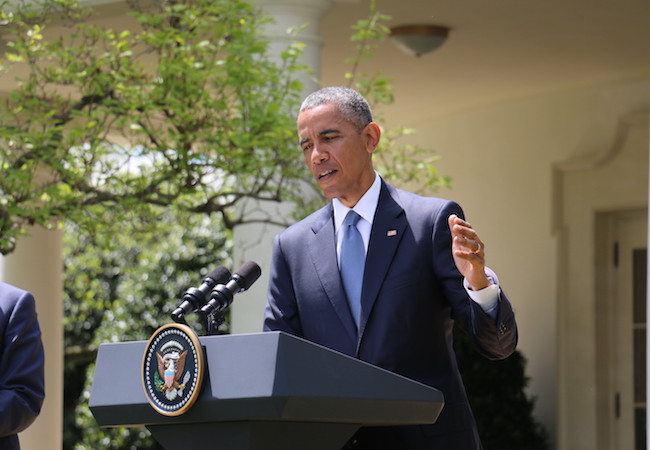Re-establishment of diplomatic relations with Cuba

President Obama announced on July 1, 2015, the historic decision to re-establish diplomatic relations between Cuba and the United States of America, effective July 20. The U.S. Department of State also notified Congress of its intent to convert the U.S. Interests Section in Havana, Cuba to U.S. Embassy Havana, effective on the same date. These are important steps in implementing the new direction in U.S.-Cuba relations announced by President Obama on December 17, 2014.
On July 1, the U.S. and Cuban Interests Sections exchanged presidential letters declaring mutual intent to re-establish diplomatic relations and re-open embassies on July 20, 2015. President Obama affirmed that the two governments had agreed to develop “respectful and cooperative” relations based on international principles, including the promotion and encouragement of respect for human rights and fundamental freedoms for all.
The U.S. Embassy will continue to perform the existing functions of the U.S. Interests Section, including consular services, operation of a political and economic section, implementation of a public diplomacy program, and will continue to promote respect for human rights. The U.S. Embassy will allow the United States to more effectively promote our interests and values and increase engagement with the Cuban people.
The U.S. Embassy in Havana will operate like other embassies in restrictive societies around the world, and will operate in sync with our values and the President’s policy. Diplomats will be able to meet and exchange opinions with both government and nongovernment entities. Chief of Mission Jeffrey DeLaurentis will be the senior-most official in the new embassy and will serve as Charge d’Affaires ad interim.
Normalizing relations is a long, complex process that will require continued interaction and dialogue between our two governments, based on mutual respect. We will have areas of cooperation with the Cubans, and we will continue to have differences. Where we have differences, deeper engagement via diplomatic relations will allow us to articulate those differences clearly, directly, and when appropriate, publicly. Throughout our diplomatic engagement, the United States will remain focused on empowering the Cuban people and supporting the emergence of a democratic, prosperous, and stable Cuba.
The embargo on Cuba is still in place and legislative action is required to lift it. Additionally, rules for travel to Cuba by U.S. citizens remain in effect. The U.S. Department of the Treasury’s Office of Foreign Assets Control will continue to administer the regulations that provide general licenses for the 12 categories of authorized travel to Cuba.
The Administration has no plans to alter current migration policy, including the Cuban Adjustment Act. The United States continues to support safe, legal and orderly migration from Cuba to the United States and the full implementation of the existing migration accords with Cuba.
Source: White House




